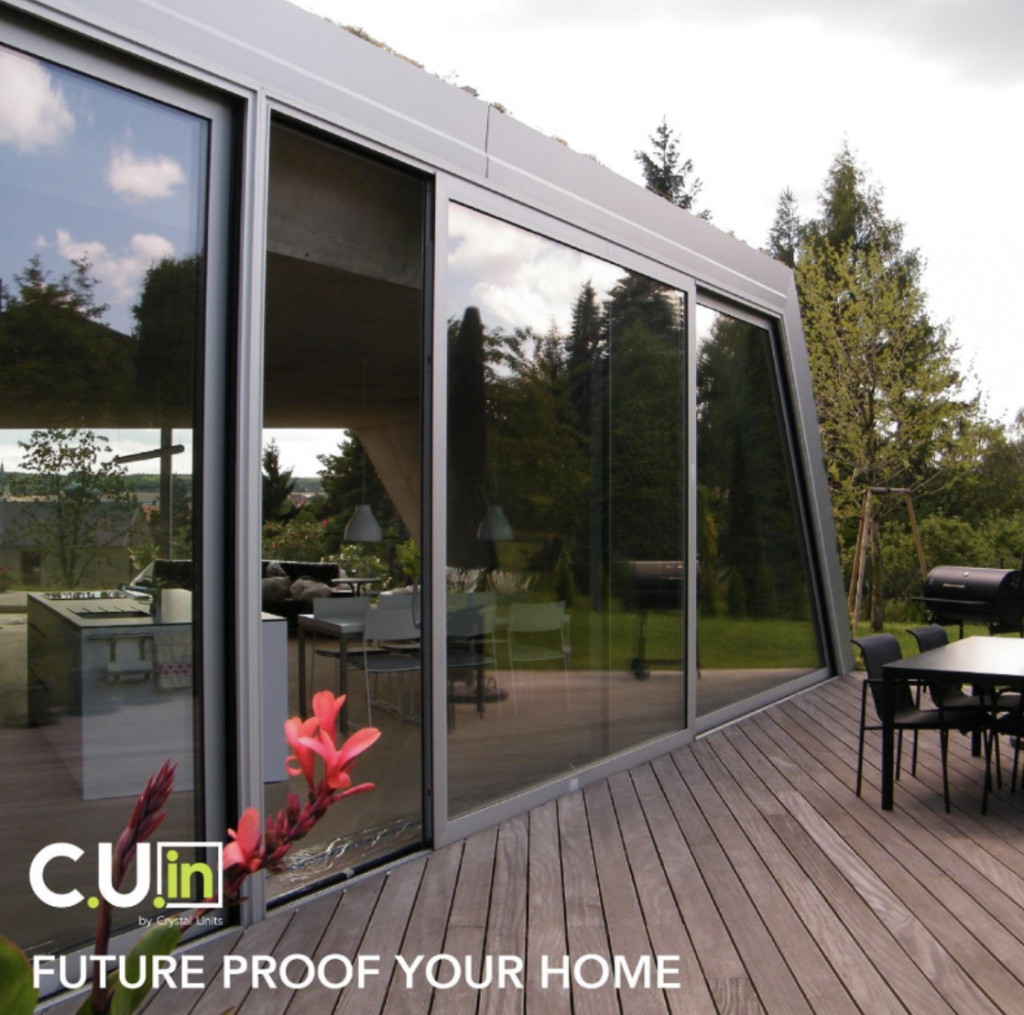Stay Warm, Save Money: A Look into Thermally Efficient Window Solutions
Windows play an indispensable role in our homes. They offer aesthetic appeal, light, and, most importantly, insulation. As the UK battles unpredictable weather patterns, homeowners are increasingly prioritising the thermal efficiency of their homes. Enter thermally efficient windows. But what makes a window “thermally efficient”? And can such windows also address noise concerns? Let’s delve into the fascinating world of thermally efficient window solutions.

1. What Makes A Window Thermally Efficient?
The thermal efficiency of a window determines how well it prevents heat from escaping or entering your home. A thermally efficient window plays a vital role in reducing energy consumption and ensuring comfort. Here’s a deeper look into the factors that contribute:
Materials Used in Window Frames
- Vinyl: Recognised for its superb insulation properties, it doesn’t conduct heat readily, making it a favourite for energy-conscious consumers.
- Wood: Traditional and charming, wood provides excellent insulation but requires more maintenance to avoid issues like rotting and warping.
- Fibreglass: This material resists thermal transfer effectively and emulates the warmth of wooden frames without the same maintenance demands.
- Aluminium: Less insulating by nature, but modern aluminium frames can be enhanced with thermal breaks to improve their insulating capabilities.
Glazing Techniques
- Double and Triple Glazing: Incorporating two or three glass panes with spaces in between, these designs trap air or gases, acting as insulation barriers.
- Gas Fillers: Spaces in multi-glazed windows can be filled with gases like argon or krypton, which have lower thermal conductivity than air, bolstering insulation.
Low-Emissivity (Low-E) Coatings
These are microscopic coatings—often made of metal or metallic oxide—placed on the window surface. They reflect radiant heat, keeping interiors cool in summer and warm in winter.
Spacer Bars and Seals
Spacer bars maintain the gap between multiple panes in a glazed window, and the seals ensure there’s no leakage. Modern spacers contain little to no metal, reducing heat transfer.

Window Design and Installation
Even the most thermally efficient window can underperform if not properly installed. Ensuring tight seals and using quality materials for caulking and weather-stripping are crucial.
2. The Sound Barrier: Beyond Warmth
While thermal insulation is a priority, acoustic insulation or soundproofing is fast becoming equally significant for homeowners, especially in urban areas.
- Acoustic Glass Windows: Comprising multiple layers of glass and PVB (polyvinyl butyral) laminated together, acoustic glass windows significantly dampen outside noise. The PVB layer acts as a barrier, preventing a substantial amount of noise from passing through.
- Soundproof Windows: Going beyond just the glass, soundproof windows include components designed specifically to reduce noise transfer. They may have thicker glass, multiple panes, and specially designed frames and seals.
- Air Gaps: The space between panes in multi-glazed windows, when optimised, can significantly reduce sound transmission.
- Installation: Proper fitting is vital. Ensuring there are no gaps and using quality materials for seals can dramatically improve the soundproofing quality of a window.
3. The Role of Modern Technology in Window Efficiency
In the race to provide the best thermally efficient solutions, modern technology has played a pivotal role. Here’s how technology is shaping the future of window efficiency:
- Smart Windows: Utilising nanotechnology, smart windows have the capability to change their tint based on the intensity of sunlight. This dynamic response helps in maintaining the indoor temperature, reducing the need for air conditioning or heating.
- Aerogel Insulation: Termed as ‘frozen smoke’, aerogel is a highly porous material with low thermal conductivity. When used in windows, it offers exceptional insulation without compromising on the window’s translucence.
- Suspended Film Technology: Like in C.U.in windows, incorporating a suspended film between the panes of glass can act as an additional insulating barrier, enhancing thermal efficiency. This film, being lighter and thinner than glass, offers superior insulation without adding bulk.
- Solar Heat Gain Coefficient (SHGC): Advanced windows are now designed with an optimal SHGC, which measures the solar radiation entering through a window. By balancing this coefficient, windows can allow in light while reflecting away a significant portion of the sun’s heat.
- Soundproofing Capabilities: With increasing urban noise pollution, the demand for soundproof windows is on the rise. Solutions like those from C.U.in not only provide thermal insulation but also significant noise reduction. For an in-depth insight into this, C.U.in’s blog post provides valuable recommendations on the best soundproof windows for noise reduction.
4. Benefits of Thermally Efficient Windows
The shift towards thermally efficient windows isn’t just a trend; it’s backed by tangible benefits that homeowners can experience.
- Energy Savings: A well-insulated window reduces the need for artificial heating and cooling, translating to significant savings on energy bills.
- Comfortable Living Environment: By maintaining a consistent indoor temperature, these windows ensure homes remain comfortable, irrespective of the outside weather.
- Reduced Condensation: Efficient windows prevent the build-up of condensation, which can lead to mould growth and other related issues.
- Environmental Benefits: Reduced energy consumption means lower CO2 emissions, making thermally efficient windows an eco-friendly choice.
- Sound Insulation: As discussed, many thermally efficient windows also offer acoustic insulation, ensuring peace and tranquillity within the home.
- Increased Property Value: Modern homeowners value energy efficiency, making homes with such windows more appealing in the real estate market.
- UV Protection: Many thermally efficient windows can also block a significant amount of the sun’s ultraviolet rays, which can fade furnishings and harm human skin over time.
Conclusion
As homeowners become more conscious of their energy consumption and environmental impact, thermally efficient window solutions are no longer a luxury but a necessity. Beyond just warmth, there’s a growing demand for windows that offer sound insulation, particularly in bustling urban areas. C.U.in, with its innovative technology and commitment to eco-friendly solutions, offers a promising solution to both these challenges.
Author Bio:
Pankaj Gorsia
Pankaj Gorsia is the Director of CUIN Glass in London. Under his leadership, Crystal Units has continuously grown thanks to its exclusive high-performance insulating glass with suspended film technology in the residential and commercial sectors.





